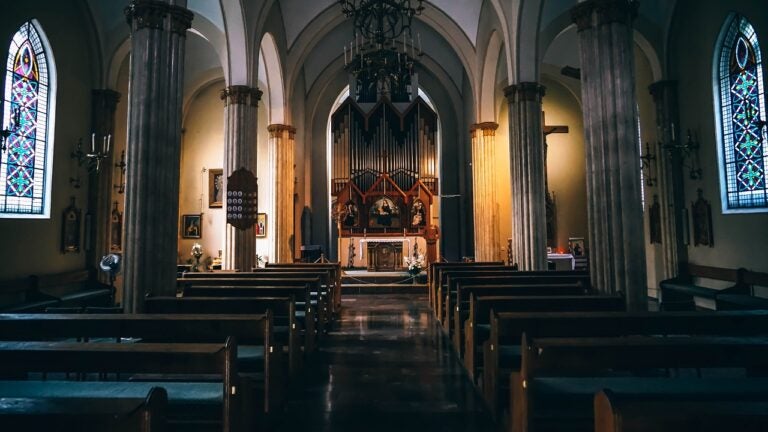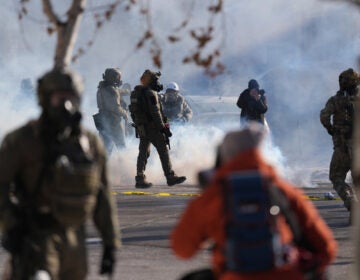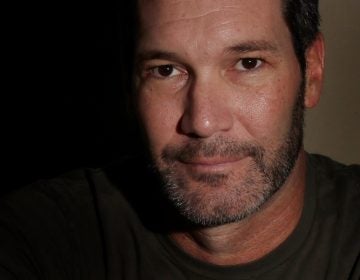Report finds flaws in Catholic Church abuse-prevention plans
CHILD USA says prevention will remain flawed as long as individual bishops remain in charge of implementation without more forceful independent oversight.

(Pexels)
Child-protection policies adopted by Roman Catholic leaders to curb clergy sex abuse in the United States are inconsistent and often worryingly incomplete, according to a think tank’s two-year investigation encompassing all 32 of the country’s archdioceses.
The analysis by Philadelphia-based CHILD USA said the inconsistencies and gaps suggest a need for more detailed mandatory standards for addressing sexual abuse of children by priests and other church personnel, a problem that has beset the church for decades and resulted in many criminal investigations, thousands of lawsuits and bankruptcy filings by numerous dioceses.
After a big wave of clergy abuse was reported in the early 2000s, U.S. bishops in 2002 created the Charter for the Protection of Children and Young People, more commonly known as the Dallas Charter, a baseline for reporting, training and prevention policies on sexual abuse.
“Unfortunately, the Catholic Church has left the development and implementation of policies to the discretion of each local diocese and archdiocese,” CHILD USA said. “As a result, there is now a hodgepodge of relatively new child protection practices across the U.S.”
In a response provided to The Associated Press, the U.S. Conference of Catholic Bishops defended its anti-abuse efforts, which church officials say have helped reduce abuse allegations since 2002 to numbers far lower than several decades ago.
The conference noted that under church law, each local bishop is responsible for implementing the policies outlined in the Dallas Charter, resulting in variations across the U.S.
“States and local civil jurisdictions may have different reporting requirements and dioceses may have different population needs,” the statement said. “Thus, a ‘one-size-fits-all’ approach is less effective than principles that can be applied and adapted locally.”
“We have made much progress but know the painful experience of survivors calls us to continual improvement,” it said.
But CHILD USA founder and CEO Marci Hamilton said the prevention effort will remain flawed as long as individual bishops remain in charge of implementation without more forceful independent oversight.
“They have a long way to go,” she said. “Whatever the numbers of cases are, the policies are still not adequate.”
Among the major areas of concern for CHILD USA are the archdioceses’ procedures for investigating sex abuse allegations.
The report found only five archdioceses have policies allowing for an independent investigator to take charge of a probe. In most archdioceses, it said, the lead investigator is someone with a high-level church role, such as the archbishop, the vicar general for clergy or the legal counsel.
“These officials have blatant conflicts of interest that call into question their ability to conduct an impartial investigation,” the report said. “In addition, they do not have the education and experience necessary for investigating child sexual abuse allegations.”
Other areas of concern:
- Background screening: The report said archdioceses have policies for background screening of prospective employees, but some do not require that sex-offender registries be checked prior to hiring and do not stipulate there should be screening of priests coming from abroad.
- Codes of conduct: Most of the archdioceses simply prohibit inappropriate physical contact but not do outline various grooming techniques commonly used by molesters, the report said. However, it commended the Miami archdiocese for listing specific questionable behaviors, such as keeping secrets with children and developing a special relationship with an individual child.
- Monitoring: The report said most archdioceses have no written policy for monitoring priests who have committed misconduct and are considered a risk to minors.
- Whistleblowers: According to the report, only five archdioceses have policies in place to protect personnel from retaliation for reporting suspicions of sexual misconduct or other illegal or inappropriate behavior.
Lead investigator Stephanie Dallam said no archdiocese came close to a “gold standard” on prevention policies. She said those that have made the most progress included archdioceses such as Boston and Philadelphia, which faced intense pressure for changes after highly publicized abuse investigations.
The national bishops’ conference has already been active, through its National Review Board, in monitoring the implementation of its policies, not just in the 32 archdioceses but in all 197 U.S. dioceses.
The board’s latest annual report, issued in March, lamented “signs of complacency and lack of diligence on the part of some dioceses.” It said some dioceses were failing to conduct background checks and require abuse-prevention training for clergy and employees who had direct contact with children.
The board also said some dioceses lack a formal plan for monitoring priests removed from ministry because of alleged abuse.
“The fact that in 25-30% of dioceses these recurring problems are still evident points to lack of diligence that puts children’s safety at risk,” the board said. “Although dioceses continue to do good work in creating cultures of protection and healing, the fact remains the church’s efforts will be measured based on the weakest links.”
Even so, there is evidence the U.S. church has cut down on the level of sex abuse since the Dallas Charter was implemented.
According to Georgetown University’s Center for Applied Research in the Apostolate — an authoritative source for statistics on Catholicism in the U.S. — there have been fewer than 300 allegations of clerical sex abuse of minors since 2005, compared with more than 11,500 such allegations in the 1970s and 1980s.
___
Associated Press religion coverage receives support from the Lilly Endowment through the Religion News Foundation. The AP is solely responsible for this content.
WHYY is your source for fact-based, in-depth journalism and information. As a nonprofit organization, we rely on financial support from readers like you. Please give today.




